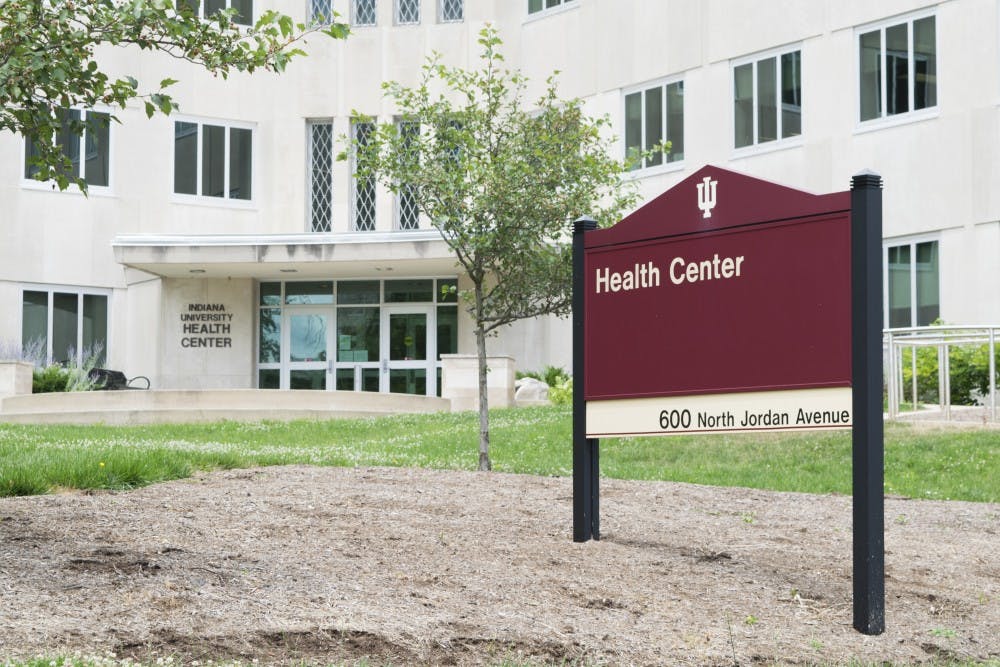Wilson Hsiao remembers being afraid of telephone calls. After coming to the U.S. in 2004 to study abroad, he would avoid making phone calls. With no facial expressions to read and the potential of not understanding the other person, Hsiao put off talking on the phone for his first year in the U.S.
“I can somewhat see myself needing help at that moment,” he said.
He knows the anxieties and stresses of international students intimately. Now, 13 years later, he works to help students who are in the same position as he was. Working as a clinical psychologist at Counseling and Psychological Services at the IU Health Center, Hsiao is part of a program called Let’s Talk, which works to reduce the barriers between international students and CAPS resources.
“We work very hard to understand a variety of cultures,” CAPS Director Nancy Stockton said. “We try to learn in every way we can, including from students themselves.”
Let’s Talk, a multicultural outreach program, started in 2016. It’s a collaboration between CAPS and the five culture centers on campus to make counseling services as accessible to multicultural students as possible.
Students are able to walk into the culture centers for a friendly chat about problems they may be having. The second half of the program, Let’s Keep Talking, allows students to continue talking with professional counselors.
Currently, counselors are available to help international students at the Neal-Marshall Black Culture Center, La Casa Latino Cultural Center, Asian Culture Center, Office of International Services and First Nations Educational and Cultural Center.
Hsiao, a native Mandarin speaker from Taiwan, and Luciana Guardini, a native Spanish speaker from Argentina, help break down one of the biggest barriers for international students: language. Fifty percent of international students at IU speak Mandarin, Hsiao said.
Since it first started in the fall of 2016, Let’s Talk has had 153 visits and 53 clients. Clients had an average of three visits each. Hsiao has noticed that his calendar of clinic hours has been getting steadily more full. Word-of-mouth has helped.
“Some of the students come to see me, and they start to tell me they know someone else who might benefit from the service and they ask me for my business card,” he said. “And then they try to give the information to other people.”
International students experience many of the same stresses that domestic students experience — academics, relationship troubles and financial worries. But for international students, the stresses of college life are compounded by the difficulty of adapting to an entirely new culture.
“A lot of things take time, when they feel isolated, when they feel frustrated, I think I can understand and let them know that it’s a process,” he said.
Cultural differences can be a source of emotional distress for international students. Many Asian countries deliver final grades in the form of points, while American grades are by letters. International students can stress over the difference between a 96 and a 97, Hsiao said, because each point counts in the system they were raised under.
“I just try to help them look at the grades in a more realistic way,” he said. “If you look at these scores from a baseline of zero, you will see it as a big achievement. If you view this from the baseline of 100, you will see it as a deficit.”
International students also experience finance-related stresses. They typically rely on their family for financial support. So when they don’t perform academically as well as they had hoped, they can experience feelings of shame or guilt.
“I don’t want to send out a message that domestic students don’t perceive that financial burden can be an issue, but if you understand the international students, you see that they have a lot of hoops to jump through,” he said.
Hsiao also helps international students deal with problems they might have experienced at home but haven’t addressed yet.
“This might be a better place to explore,” he said. “[In] their own country, their mental health system might not be as well-established as here in the United States.”
Counselors like Hsiao also bridge differing perceptions of mental illnesses across cultures. For example, although the rates of depression are similar worldwide, it might not be recognized as a phenomenon in some cultures, Stockton said.
“It depends on the culture,” she said. “Emotional disturbance is more a part of some cultures than others.”
But a diagnosis is only part of Hsiao’s mission to help students understand themselves and find solutions to their problems.
“My job is not to understand them best by the diagnosis,” he said. “My job is to understand them by their individual background.”
CAPS recently hired a second Mandarin-speaking counselor, Daisy Day, who will help increase the amount of work Let’s Talk and Let’s Keep Talking can handle. Hsiao wants international students to know that they can be healthy and succeed while they study abroad.
“First, I want to congratulate them,” he said. “They made such effort to come here. Adjusting to life here in the United States could take time, could be intimidating. If they feel a need for help, I want to let them know they are not alone.”






